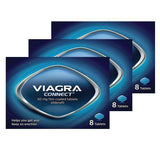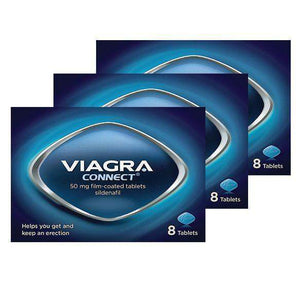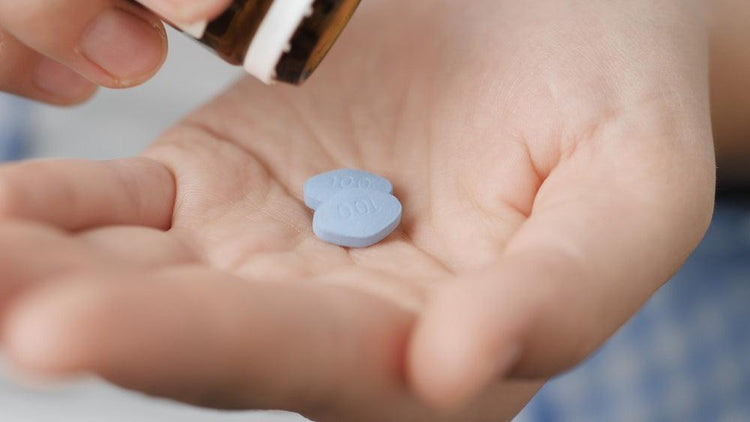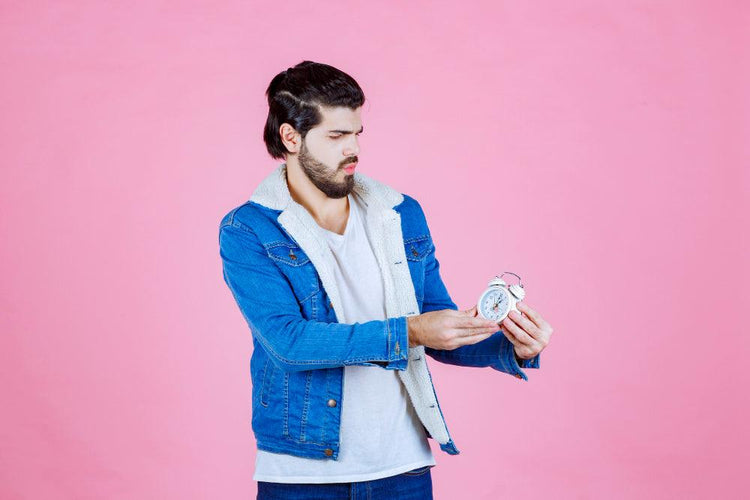Simple Trick to Cure ED: 7 Simple Steps

Related products
7 Simple Tricks to Cure Erectile Dysfunction
Explanation of Erectile Dysfunction (ED)
Erectile dysfunction (ED) is a prevalent health issue affecting millions of men worldwide. It is a condition characterised by the persistent inability to achieve or maintain an erection sufficient for satisfactory sexual performance. ED has a profound impact on a man's self-esteem, relationships, and overall quality of life. ED is not just a sexual health issue; it's a matter of overall well-being, as stated by Dr Andrew Kramer, a leading urologist and ED expert from the University of Maryland Medical Centre.
Importance of Addressing ED in a Timely Manner
Addressing ED promptly is crucial for several reasons. First, it might be an early indicator of underlying health issues such as cardiovascular disease, diabetes, or hypertension. According to a study published in the American Heart Journal, men with ED are 1.9 times more likely to develop coronary artery disease within ten years. Addressing ED early on potentially saves lives by identifying and managing these underlying conditions. Second, untreated ED potentially exacerbate psychological issues such as anxiety, depression, and relationship problems. Prompt intervention helps prevent these issues from worsening, improving mental health and overall well-being. Lastly, effective treatments are available for ED, and addressing the condition in a timely manner leads to significant improvements in sexual function and quality of life. This article, published by Welzo the online medical journal, outlines a simple trick to cure ED in 7 steps, providing a holistic approach to overcoming this common issue.
Overview of the Simple Trick to Cure ED in 7 Steps
The seven steps in this article aim to address various aspects of lifestyle, mental health, and physical health to provide a comprehensive solution to ED. By following these steps, men are able to treat erectile dysfunction and overall health:
Improve diet and nutrition Increase physical activity
Manage stress
Prioritise sleep and rest
Limit alcohol and smoking
Monitor medications
Seek professional help
Read below for the full detailed list of tricks to cure ED.
These steps, when combined, contribute to the successful management and resolution of ED. By providing detailed guidance and examples, this article aims to empower men to take control of their sexual health and improve their lives. Each step is backed by expert quotes and statistics, ensuring that the information provided is accurate and up-to-date.

Understanding Erectile Dysfunction
Definition of ED
Erectile dysfunction (ED) is defined as the persistent difficulty in achieving or maintaining an erection firm enough for sexual intercourse. It is important to note that occasional difficulty in achieving an erection is not uncommon and does not necessarily indicate ED. It is important to diagnose erectile dysfunction when the issue becomes consistent and negatively impacts a man's sexual life.
Common Causes of ED
Erectile dysfunction might be caused by a variety of factors, which are broadly classified into two categories: physical and psychological causes.
Physical Causes
Physical causes of ED include vascular diseases, such as atherosclerosis, hypertension, and diabetes Neurological disorders, including multiple sclerosis, Parkinson's disease, and spinal cord injuries Hormonal imbalances, such as low testosterone levels. Side effects of certain medications, including antidepressants, antihypertensives, and cholesterol-lowering drugs
Psychological Causes
Psychological causes of erectile dysfunction include anxiety, depression, and other mental health disorders.
Relationship issues, such as poor communication, unresolved conflicts, or trust problems
Performance anxiety and fear of failure. If one thinks ED has psychological causes, you're right! A large part of why some men have erectile dysfunction is due to their mental health. The most common reasons for this are stress and anxiety, which might be caused by depression or relationship problems. Medical advice given by mental health professionals is often necessary to determine the root cause of an individual's ED.
ED Caused by Medication
ED is potentially a side effect of medication. There are many different types of medications that are linked to erectile dysfunction. These include:
-
Antidepressants
-
Anti-hypertensives (blood pressure pills)
-
Medicines for heart disease, cholesterol and diabetes
Prevalence ED and Impact on Quality of Life
ED is a widespread condition affecting approximately 30 million men in the United States alone The prevalence of ED increases with age, with around 40% of men aged 40 years experiencing some degree of ED, and this figure rising to nearly 70% among men aged 70 years. ED significantly impacts a man's quality of life, leading to decreased self-esteem, relationship problems, and a reduced sense of well-being. Additionally, two days per week must be dedicated to muscle-strengthening activities, such as resistance training. It is essential to consult a healthcare professional before starting any exercise program, especially if you have pre-existing medical conditions.
Step 1: Manage Stress
Stress contributes to ED, as it negatively impacts hormone levels, blood pressure, and overall mental well-being. The importance of stress management for overall health is highlighted by Dr Brent A. Bauer, a specialist in integrative medicine at the Mayo Clinic.
Mindfulness Techniques for Erectile Dysfunction
- Meditation: Helps to calm the mind and reduce stress- Yoga: Combines physical postures, breath control, and meditation to reduce stress and promote relaxation - Deep breathing exercises: Activate the body's relaxation response, lowering stress levels.
Counseling and Therapy for Erectile Dysfunction
- Cognitive-behavioral therapy (CBT): Helps to identify and change negative thought patterns and behaviours related to stress and ED - Couples therapy: Addresses relationship issues that may contribute to ED.
Step 2: Prioritise Sleep and Rest
Sleep is essential for overall health, and poor sleep contributes to ED. The importance of sleep for sexual function is highlighted by Dr Alex Dimitriu, a psychiatrist and sleep medicine specialist.
Sleep Hygiene Tips
- Establish a consistent sleep schedule: Going to bed and waking up at the same time each day- Create a relaxing bedtime routine: Engage in calming activities, such as reading, taking a warm bath, or practising relaxation techniques - Limit screen time before bed: Exposure to blue light from screens might interfere with the production of the sleep hormone melatonin.
Importance of Consistent Sleep Schedule
Maintaining a consistent sleep schedule helps regulate the body's internal clock, leading to better sleep quality and overall health. Consistent sleep patterns contribute to improved sexual function by reducing stress, maintaining hormonal balance, and promoting overall well-being.
Step 3: Limit Alcohol and Smoking
Both alcohol and smoking have detrimental effects on erectile function. The importance of reducing alcohol consumption and quitting smoking for improved sexual health is emphasised by Dr Irwin Goldstein, a sexual medicine expert and editor-in-chief of The Journal of Sexual Medicine.
1. Effects of Alcohol and Smoking on ED
- Alcohol: Excessive alcohol consumption leads to nerve damage, hormonal imbalances, and reduced blood flow, all of which contribute to ED
- Smoking: Cigarette smoke contains harmful chemicals that might damage blood vessels and impair blood flow, leading to ED.
2. Tips for Quitting or Reducing Consumption
- Set a quit date: Choose a specific day to quit smoking or reduce alcohol intake - Seek support: Reach out to friends, family, or support groups for encouragement and accountability - Consider medication or therapy: Consult a healthcare professional about medications or therapies that may aid in quitting smoking or reducing alcohol consumption.
Step 4: Monitor Medications
Certain prescription drugs might contribute to ED as a side effect. Patients to discuss their medications with their healthcare providers if they suspect a link to ED as advised by Dr Ryan Berglund, a urologist at Cleveland Clinic.
1. Common Medications That May Cause ED
- Antidepressants: Selective serotonin reuptake inhibitors (SSRIs) and other antidepressants might affect sexual function - Antihypertensives: Beta-blockers and diuretics may contribute to ED - Cholesterol-lowering drugs: Statins cause ED in some cases.
2. Consulting a Healthcare Professional
If one suspects that a medication may be causing ED, consult a healthcare provider. They might assess the situation and may adjust the dosage, switch to a different medication, or suggest alternative treatments to address the issue. Never stop or change a medication without consulting a healthcare professional.
Step 5: Seek Professional Help for Erectile Dysfunction
If lifestyle changes do not resolve ED, it may be necessary to seek professional help. Consulting a doctor if ED persists, worsens, or begins to impact the quality of life as recommended by Dr Tom Lue, a urologist at the University of California, San Francisco.
1. When to Consult a Doctor
Seek medical advice if:
- ED persists for more than a few months
- ED worsens over time
- ED causes significant distress or impacts one's quality of life
- A person has other symptoms, such as pain or difficulty with urination.
2. Types of Treatments and Therapies Available
Various erectile dysfunction treatments are available, including: - Oral medications: Phosphodiesterase type 5 (PDE5) inhibitors, such as sildenafil (Viagra), tadalafil (Cialis), and vardenafil (Levitra) - Vacuum erection devices: Help create an erection by drawing blood into the penis - Intracavernosal injections: Medications injected directly into the penis to induce an erection - Penile implants: Surgically implanted devices that may be inflated or manipulated to create an erection- Psychological counselling: Addresses emotional and psychological factors contributing to ED Remember, it is crucial to consult a healthcare professional before trying any new treatments or therapies for ED. They help determine the most appropriate course of action based on specific needs and circumstances.
Step 6: Open Communication with Partner
Discussing erectile dysfunction with one's partner helps alleviate the pressure and anxiety associated with the condition. Open communication fosters emotional support, understanding, and a collaborative approach to addressing ED. Couples therapy is helpful in navigating relationship dynamics and improving communication.
Step 7: Kegel Exercises for Erectile Dysfunction
Kegel exercises, known as pelvic floor muscle training, help strengthen the muscles responsible for maintaining an erection. To perform Kegels, identify the pelvic floor muscles by stopping the flow of urine mid-stream. Tighten these muscles for 3-5 seconds, then relax for 3-5 seconds. Repeat this exercise 10-15 times per session, at least three times a day.
Alternative Treatments and Therapies
While more research is needed, some alternative treatments and therapies may provide relief for ED.
1. Acupuncture
Acupuncture has been used as a treatment for ED in traditional Chinese medicine, and some studies suggest it may help improve erectile function. However, more rigorous research is necessary to establish its effectiveness and safety.
2. Herbal Supplements
Several herbal remedies and nitric oxide supplements, such as ginseng, L-arginine, and Yohimbe, have been touted as natural remedies for ED. However, the efficacy and safety of these supplements are not well established, and some may interact with medications or cause side effects. Consult a healthcare professional before trying any herbal supplements for ED.
3.nitric oxide
Ed treatments containing nitric oxide have been linked to helping improve erectile dysfunction and even help with high blood pressure.
Causes of Erectile Dysfunction
Erectile Dysfunction is caused by a variety of factors, including:
-
Physical Factors: Conditions such as diabetes, heart disease, high blood pressure, obesity, and low testosterone levels contribute to the development of ED.
-
Lifestyle Factors: Smoking, excessive alcohol consumption, lack of exercise, and poor diet contribute to the development of ED.
-
Psychological Factors: Stress, anxiety, depression, and relationship issues play a significant role in the onset of ED.
Diagnosis and Evaluation
A thorough evaluation is essential for determining the underlying cause of Erectile Dysfunction. A healthcare provider might recommend the following:
-
Physical Examination: A comprehensive physical examination help identify any underlying medical conditions that may be contributing to ED.
-
Blood Tests: Blood tests detect issues such as high cholesterol, diabetes, and low testosterone levels.
-
Psychological Evaluation: A mental health professional may assess one's emotional and psychological well-being to identify any contributing factors.
Treatment Options for Erectile Dysfunction
Several treatment options are available for men experiencing ED, including:
Oral Medications
Oral medications such as sildenafil (Viagra), tadalafil (Cialis), and vardenafil (Levitra) are commonly prescribed to treat ED. These medications work by increasing blood flow to the penis, resulting in a firmer erection.
Vacuum Erection Devices (VEDs)
A Vacuum Erection Device is a non-invasive treatment option that uses a cylinder and a pump to create a vacuum around the penis, drawing blood into the penile tissue and causing an erection.
Penile Injections
Penile injections involve injecting medication directly into the penile tissue to increase blood flow and produce an erection. Commonly used medications include alprostadil, papaverine, and phentolamine.
Penile Implants
In cases where other treatment options have proven unsuccessful, penile implants may be recommended. These devices are surgically implanted into the penis, allowing for a more natural-looking and -feeling erection.
Lifestyle Changes for Long-Term Improvement
In addition to medical interventions, lifestyle changes play a significant role in improving erectile function. Consider the following:
-
-
Regular Exercise: Engaging in physical activity improve blood flow, boost testosterone levels, and alleviate stress.
-
Healthy Diet: Consuming a well-balanced diet rich in fruits, vegetables, whole grains, and lean proteins support overall health and erectile function.
-
Stress Management: Pract
-
icing relaxation techniques such as deep breathing, meditation, or yoga helps reduce stress and anxiety, which may contribute to ED. 4. Quit Smoking: Smoking damages blood vessels and impair blood flow, so quitting significantly improve erectile function.
-
Limit Alcohol Consumption: Excessive alcohol intake negatively impacts erectile function. Reducing alcohol consumption leads to improvements in ED.
The Role of Psychological Factors
Psychological factors, including stress, anxiety, and depression, play a significant role in the development and persistence of Erectile Dysfunction. Addressing these issues may be crucial in overcoming ED. Psychological treatments include:
-
Individual Therapy: A licensed mental health professional helps one address and manage anxiety, depression, or other emotional issues that may be contributing to one's ED.
-
Couples Therapy: Relationship issues contributes to ED. Couples therapy helps partners communicate more effectively and work together to address sexual dysfunction.
-
Sex Therapy: A certified sex therapist helps individuals and couples address specific sexual concerns and develop strategies for overcoming ED.
Frequently Asked Questions
Can Erectile Dysfunction be cured?
In many cases, ED is successfully treated or managed through a combination of medical interventions and lifestyle changes. The specific treatment approach depends on the underlying cause of the ED.
Is it normal to experience Erectile Dysfunction as you age?
While the prevalence of ED does increase with age, it is not an inevitable part of the aging process. Many men maintain healthy sexual function well into their later years.
Are there any natural remedies for Erectile Dysfunction?
Some individuals may find relief from ED through alternative treatments such as herbal supplements or acupuncture. However, it is essential to consult with a healthcare provider before trying any alternative treatments, as they may not be effective or safe for everyone.
Conclusion
Summary of the Simple Trick to Cure ED in 7 Steps
The simple trick to cure ED involves seven steps that address various aspects of overall health and well-being, including: Improving diet and nutrition Increasing physical activity Managing stress Prioritizing sleep and rest Limiting alcohol and smoking Monitoring medications Seeking professional help when necessary
Emphasis on the Importance of Patience and Persistence
Overcoming erectile dysfunction is a process that requires patience, persistence, and a commitment to making lasting lifestyle changes. It is important to remember that results vary and that progress is often gradual.
Encouragement to Seek Professional Help if Necessary
If lifestyle changes are not sufficient in addressing an erectile dysfunction cure or if the condition worsens, it is crucial to seek professional help from a healthcare provider or specialist. The professional is able to provide guidance on appropriate ways to treat erectile dysfunction and therapies based on individual needs and circumstances.




















 Rated Excellent by 26,523+ Reviews
Rated Excellent by 26,523+ Reviews